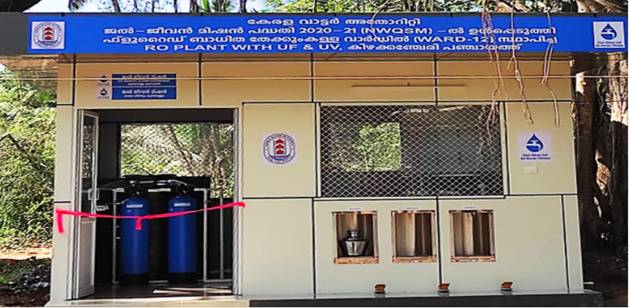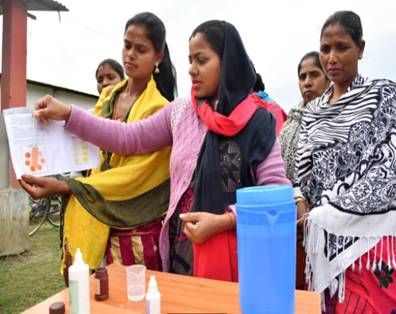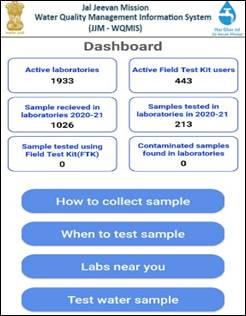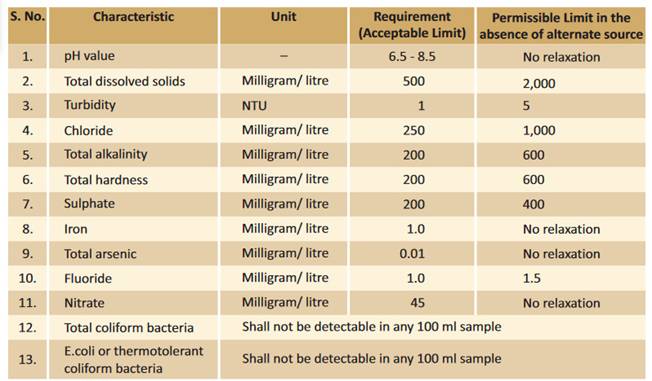Ministry of Jal Shakti
2,000 Laboratories Across Country Opened Up To General Public For Testing Their Water Samples At A Nominal Rate
Water Quality Test Reports Being Generated Online & Sent To The Citizen Along With Copy To Concerned Public Health Engineer For Immediate Corrective Action, If Any
Posted On:
18 MAR 2021 6:39PM by PIB Delhi
Prime Minister Shri Narendra Modi’s vision & mission of provision of potable tap water supply in adequate quantity and of prescribed quality on regular and long-term basis to every rural household of the country by 2024 is moving forward with great momentum. In one of those kinds of changes, which is likely to change the drinking water sector forever, about 2,000 laboratories across country have been opened up to general public for testing their water samples at a nominal rate. The source co-ordinates of all water samples are captured and the water quality testing reports are generated online and sent to the citizen along with a copy to concerned public health engineer for immediate corrective action, if any and also in the Central database for continuous monitoring and remedial action. Thus, modernization of PHEDs/ Boards/ Nigams is taking place, to make them true utilities.
In continuation to all the efforts to provide safe drinking water to rural homes, water quality testing laboratories in the State at different levels like State headquarter, district-level, block/ sub division-level are being standardized and the NABL accreditation process is in progress. The accreditation process has been taken up in a massive way during the Covid-19 pandemic. During CoVid-19 pandemic, the need-based sampling and testing protocol adopted for COVID-19 testing was widely acknowledged and appreciated. Following the same approach, NJJM in collaboration with ICMR developed the JJM-WQMIS framework for testing and remedial action. It will function as a repository of information regarding drinking water quality testing monitoring and surveillance, including all data regarding water quality testing laboratories.
Under Jal Jeevan Mission, priority has been given to provision of tap water supply to water quality-affected habitations. So far, out of identified 27,544 Arsenic and Fluoride-affected habitations, States have made provisions of potable water supply in 26,492 habitations. Since piped water supply infrastructure development takes time, States have been advised to install Community Water Purification Plants (CWPPs) as a short-term measure so that minimum 8-10 litres per person per day is available for drinking and cooking requirements. As on date, there are 32,543 CWPPs have been installed across the country.

Under the mission, the village community is empowered to lead water quality surveillance by regular water quality testing. In every village, 5 persons preferably women, are being trained on water quality testing using Field Test Kits (FTKs), so that they can test water source(s) and delivery points every year, at least twice for bacteriological contamination and once for chemical contamination. This is in addition to the department level water testing in laboratories.

Under the life changing Jal Jeevan Mission, an online Drinking Water Quality Management Information System (WQMIS) with its App was launched recently by the Union Minister for Jal Shakti Shri Gajendra Singh Shekhawat giving access to data on water quality to people at fingertips. The Ministry also released the ‘Drinking water quality monitoring & surveillance framework’ for proper functioning of water quality testing laboratories, timely detection of any water quality contamination, redressal mechanism thus, ensuring quality of tap water and sources.

This kind of monitoring at Department level and the community empowered to carry surveillance activities locally is a unique initiative to ensure safe water is provided at household level. In an effort to transform the drinking water sector, all such citizen-centric approaches are being adopted with people at the centre. All these initiatives of Ministry of Jal Shakti will create awareness among the people and enable them to make informed decisions.
To ensure safe water to every home, NJJM is empowering citizens using Information Technology by bringing transparency and accountability at all levels, thereby gradually shifting from ‘infrastructure creation’ approach to ‘service delivery’, so that public health engineering department or rural water supply department of States/ UTs can function as ‘public utilities’.
Basic water quality testing parameters

The Jal Jeevan Mission is being implemented in partnership with States to provide assured tap water supply in adequate quantity, of prescribe quality on regular and long-term basis to every rural household of the country by 2024. When the mission was announced on 15th August, about 3.23 Crore households (17%) had tap water supply. As on 18th March, 2021, 3.87 Crore households have been provided tap water connections under Jal Jeevan Mission, i.e. over 7.11 Crore (37%) rural homes now have tap water supply.
Assured potable water to every household and public institutions, viz. school, anganwadi centre, primary healthcare centre, Gram Panchayat ghar, community/ wellness centre, etc. impacts overall health and well-being of people and children, thereby healthier communities. Sustained consumption of contaminated water has adverse health impacts. Children particularly are at greater risk to water-borne diseases as multiple episodes reduce their growth, cognitive abilities and thus, diminished capacities and potential.
Further, National Jal Jeevan Mission launched an innovation challenge in partnership with Department of Promotion of Industry and Internal Trade (DPIIT) to develop portable devices for water testing. The main objective of the exercise is to bring an innovative, modular, and cost-effective solution to develop portable devices that can be used at the village/ household level to test the drinking water quality instantly, easily and accurately.
Similarly, the ministry is exploring use of sensor-based IoT solutions for smart monitoring of water quality. To improve service in terms of quantity, quality and regularity, a ‘smart water supply measurement and monitoring system’ is being developed. Pilot testing for ‘Sensor-based IoT’ Solutions is underway in 9 different locations across country. For grievance redressal, online and toll-free number-based helplines are also being set up.
***
BY/AS
(Release ID: 1705850)
Visitor Counter : 1930